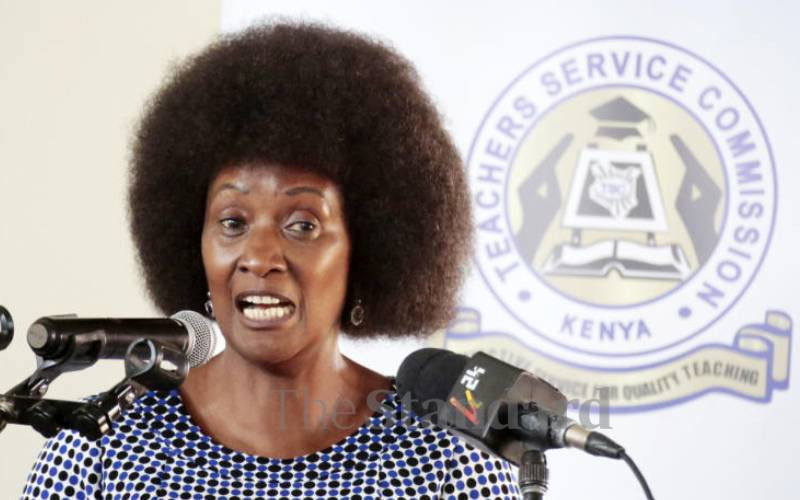Teachers yesterday actualised their threat to go on strike following the Government’s failure to effect a salary increment of between 50 and 60 per cent as ordered by the High court of Kenya, with most schools reporting the absence of teachers.
While the most logical thing to do was for Parliament to devise ways of raising funds to end the impasse, the legislators chose to go on recess instead. There is little that can be done without Parliament’s approval because, either way, consent is needed to divert some funds from the budget for the 2015/2016 financial year. It is dishonest of parliamentarians to leave the Teachers Service Commission holding the bag, sending a clear message that the teachers concerns did not merit their immediate attention.
The education sector was allocated Sh66.68 billion in the 2015/2016 financial year, which did not include extra funds for salary increments, although Sh2.3 billion was factored in to hire an additional 5,000 teachers to reduce a personnel shortfall. In a society that professes democracy, court rulings must be obeyed; in which case, teachers have a right to demand their dues. They have been fighting for that salary increment for years and there is no reason to keep them waiting much longer than is necessary.
That, however, does not give teachers the right to infringe on the right of learners to education by going on strike at the most inopportune time. For pupils in Standard Eight and those in Form Four, this is the final stretch before they take their exams, some of which are set to begin next month. Interruptions in teaching at this time will have their toll on the final outcome next year when the results are out.
The hard questions about the dwindling standard of education won’t go away. Do we appropriate maximum value from our teachers? With a salary increase, will they spend most of their day in the classroom or will they still moonlight?
There is need for deeper reflection on both sides so that the strike does not seem to serve parochial interests at the expense of the students, who tend to suffer as innocent bystanders.
The Government on the other hand must not choose intransigence by holding onto the belief it can get respite from the yet-to-be-heard appeal it lodged with the High court. In the end, teachers will have to be paid their new salaries if the turmoil that has been witnessed in the education sector these few years is to be contained.
As a stop-gap measure, the Government can put the school laptop project on hold and use the Sh17.58 billion set aside for the project to pay teachers. It would be counter-productive to have laptops in schools without teachers to instruct pupils on their use. On the other hand, TSC could use the funds already at its disposal while waiting for Parliament to approve measures that may include reducing budgets allocated to ministries and county governments. If borrowing the funds might be a more viable option, then the Government has no option but to borrow.
Raising taxes as proposed may not be an option because Kenyans already suffer the yoke of heavy taxation. The Government shot itself in the foot by bailing out select institutions, paying suspect deals, allowing MPs to continually have their hands in the till and not putting to rest concerns raised by the Auditor General over possible misuse of Sh67 billion in the 2014/2015 financial year.
All said, the welfare of students must take precedence.
 The Standard Group Plc is a
multi-media organization with investments in media platforms spanning newspaper
print operations, television, radio broadcasting, digital and online services. The
Standard Group is recognized as a leading multi-media house in Kenya with a key
influence in matters of national and international interest.
The Standard Group Plc is a
multi-media organization with investments in media platforms spanning newspaper
print operations, television, radio broadcasting, digital and online services. The
Standard Group is recognized as a leading multi-media house in Kenya with a key
influence in matters of national and international interest.
 The Standard Group Plc is a
multi-media organization with investments in media platforms spanning newspaper
print operations, television, radio broadcasting, digital and online services. The
Standard Group is recognized as a leading multi-media house in Kenya with a key
influence in matters of national and international interest.
The Standard Group Plc is a
multi-media organization with investments in media platforms spanning newspaper
print operations, television, radio broadcasting, digital and online services. The
Standard Group is recognized as a leading multi-media house in Kenya with a key
influence in matters of national and international interest.









